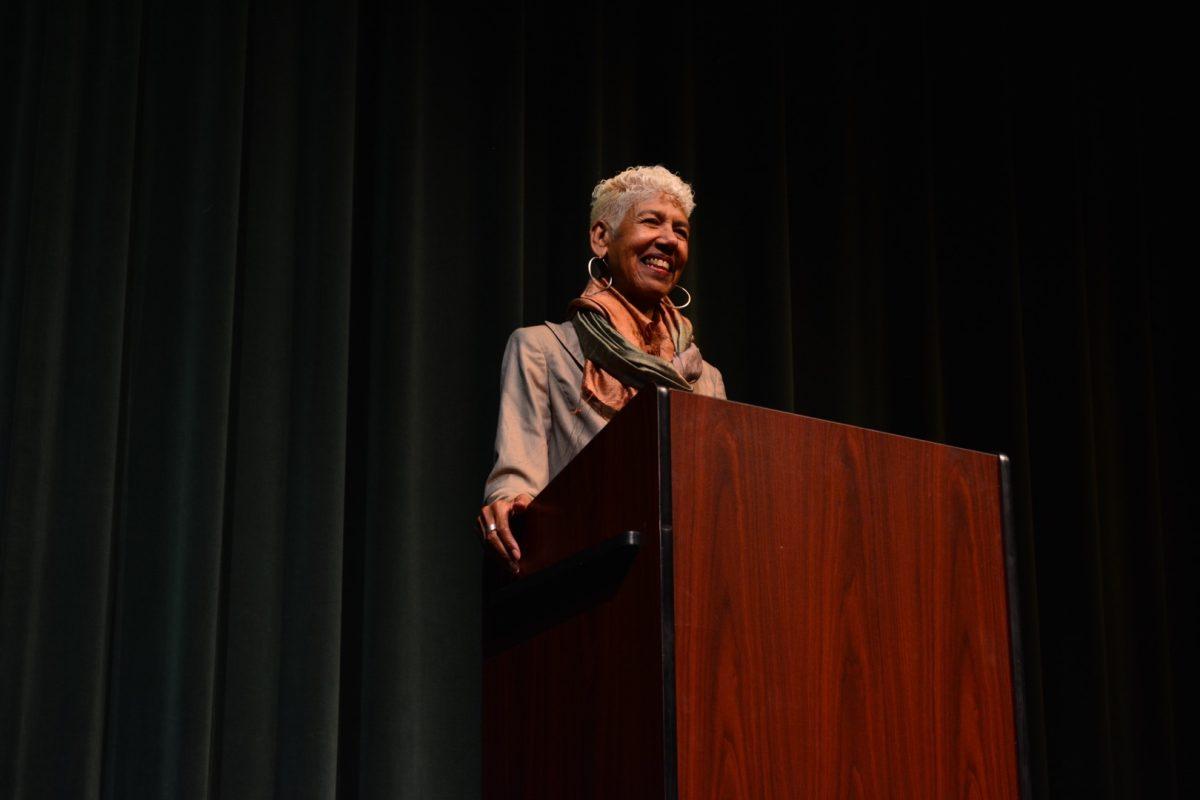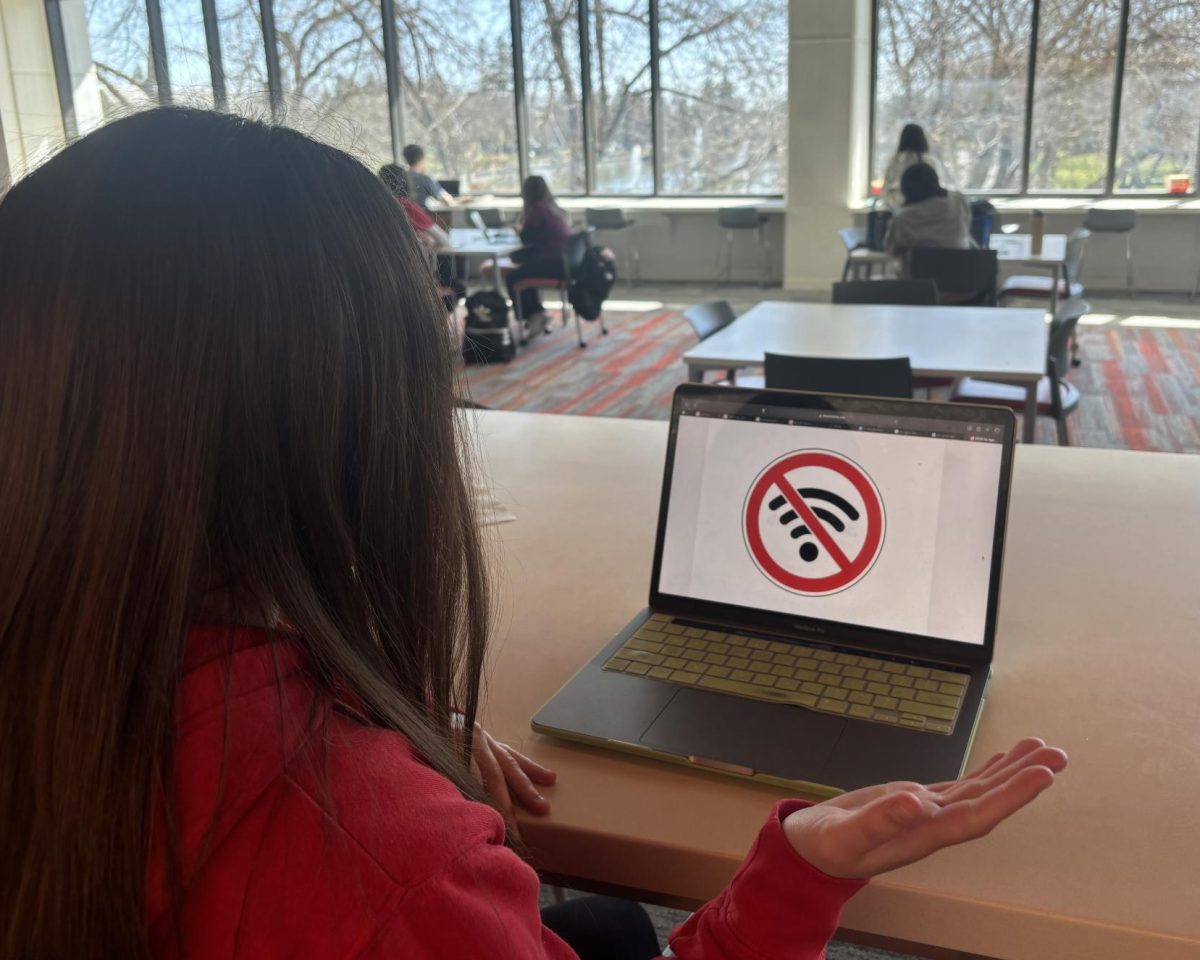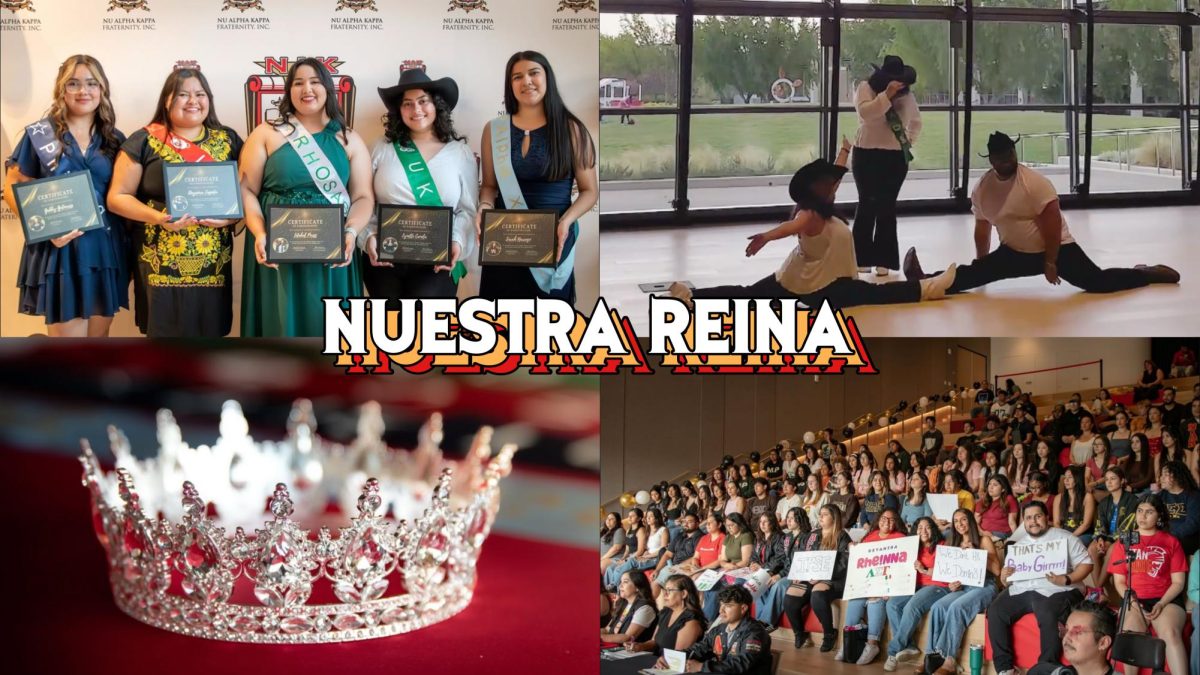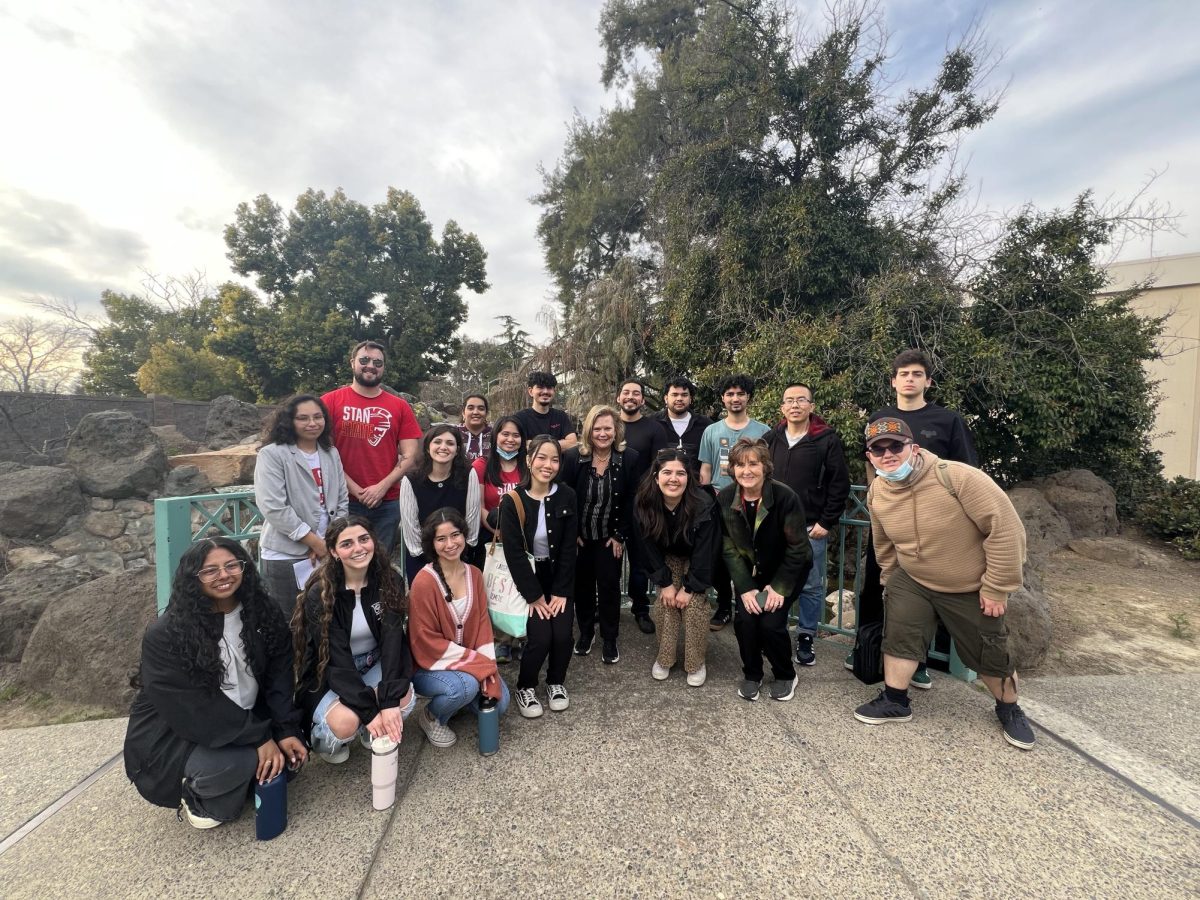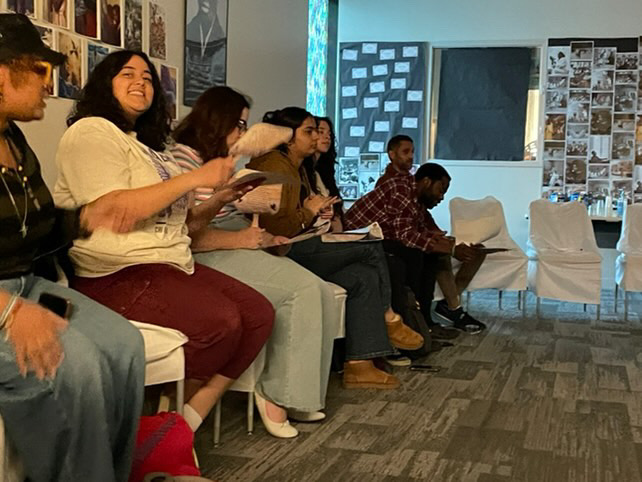Ericka Huggins, former Black Panther leader, addressed students, faculty and community members about a variety of topics regarding race on March 17. The discussion included Huggins’ experiences, social activism, ethic identification, issues from the past and today and how to end racial division.
Huggins opened the discussion by expressing there is work to be done.
“We got a lot of work to do in order for our world to be one in which children of all mothers and fathers can walk through any city, anywhere in this United States and feel safe and feel cared for and provided for,” Huggins said.
Huggins explained what social activism is.
“Speaking up is an example of being an activist,” Huggins said. “It doesn’t mean you have a sign or a poster and you’re in front of a building protesting something, but you’re actively apart of your social environment and you are about justice.”
Huggins expressed that a group conversation is important.
“Collective wisdom is a powerful thing,” Huggins said. “We don’t do it enough, especially when it comes to things like race.”
Huggins also expressed her views on race.
“There is not a smidgen of proof of race, however we further it by putting people in categorical boxes and leaving people there,” Huggins said. “There are cultures and they are all beautiful, but race was created to divide people.”
“That doesn’t mean we shouldn’t have our own identities, however being locked into them or forced into them is another thing.” Huggins said, “With that lockdown comes bias, stereotype and assumptions.”
Huggins said we make assumptions from stories we were told.
“Men think about what you were told about women… was it true?” Huggins said. “Women think about what you were told about men, especially men of color… was it true?”
Huggins talked about her experience as a member of the Black Panther Party.
“When I was 18 years old I joined the Black Panther party,” Huggins said. “We said all of the people deserved to experience, express and reclaim their own power.”
“When I was 19 I was pregnant for the first time with my daughter, I was married to John Huggins and we had driven across the country from New York to join the Black Panther Party,” Huggins said. “When I was 20 I birthed our first child, John lived to be with her for three weeks. On Jan 16 1979 on UCLA campus at Seton Hall he was assassinated.”
“After going to a haven in Connecticut, where John was from, I was asked by the Yale students, parts of the African-American community and parts of the Puerto Rican community to start a chapter of the Black Panther Party here and I said yes. Then I was arrested and incarcerated for two years,” Huggins said.
Dr. Brandon Wolfe-Hunnicutt, who was in the audience, expressed what professors can do to invoke empathy from students regarding racism and bigotry.
“I think the job of educators is to implicate a sense of empathy, provide in the curriculum a format or structure that allows people to see circumstances from another person’s viewpoint,” Wolfe-Hunnicutt said.
Huggins explain what the Black Panthers and other organizations did for the community.
“We created the first concept of a number of things, the one that stands out in my mind is People’s Free Medical Clinics,” Huggins said.
Towards the end Huggins was asked what led to the end of the Black Panther Party.
“After so many court cases, so many incarcerated members of the Black Panther Party it became unhealthy,” Huggins said. “It ended because the money we raised started to go elsewhere.”
Categories:
Ericka Huggins Opens Up About Race
By Pawan Naidu
•
March 19, 2015
0
Donate to Signal
Your donation will support the student journalists of California State University, Stanislaus. Your contribution will allow us to purchase equipment and cover our annual website hosting costs.
More to Discover

